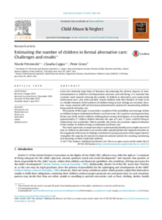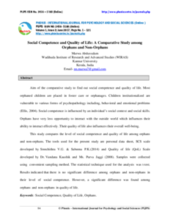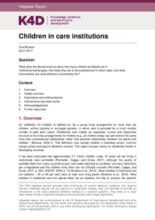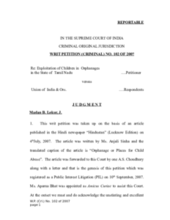Displaying 881 - 890 of 1510
Produced by UNICEF, this article provides an estimate of the number of children living in institutional care worldwide.
This study compares the level of social competence and quality of life among orphans and non-orphans.
This paper explores the question: What does the literature tell us about how many children worldwide are in institutions/orphanages; how likely they are to be exploited and in which ways; and what interventions are most effective in preventing this?
This statistical first release provides data on secure children’s homes (SCHs) in England and Wales.
The study presented in this article analyzed the life stories of 16 care leavers in Israel.
GoPhilanthropic Foundation makes the case for more informed philanthropy, volunteering and travel by discussing the reasons children enter residential care and the impact they have on children.
This chapter aims to (1) review results of recent studies, conducted in different countries, on the subjective well-being of children; (2) provide an overview of residential care in Brazil; (3) discuss recent research findings from the Research Group on Community Psychology (GPPC) of well-being in children in southern Brazil; and (4) discuss the specifics of the research context with children on state protection.
The goal of this study is to describe the population treated in therapeutic residential care (TRC) facilities in Spain and the therapeutic coverage given.
This document, released by the Supreme Court of India on 5 May 2017, outlines decisions taken by the Court in regards to child care institutions in India.
Tophaz Special Home, a 220-bed state institution for the disabled in Hungary, is to be closed following a shock report by a human rights group.






